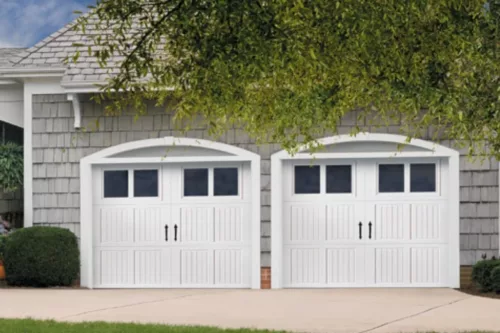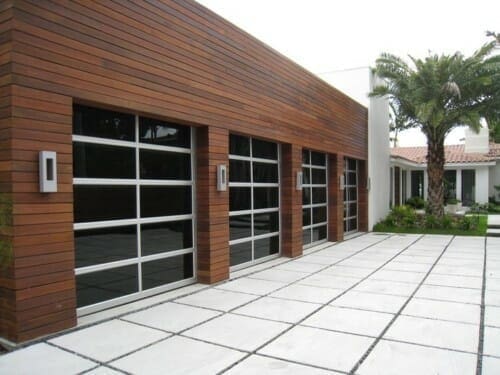In today’s energy-conscious world, understanding the power consumption of household appliances is crucial for homeowners looking to optimize their energy usage and reduce costs. Garage doors are no exception. This guide delves into the wattage requirements and energy dynamics of garage doors, helping you make informed decisions about your home’s energy management, with a special focus on garage door wattage.
Understanding Garage Door Wattage and Power Consumption
The power consumption of a garage door opener is an important aspect of your home’s overall energy usage. Typically, the wattage of garage door openers can vary depending on the model and the size of the door it needs to lift. Knowing the garage door wattage can help you better manage your energy costs.
Key Factors Influencing Garage Door Wattage Motor Size:
The size of the motor in your garage door opener plays a significant role in determining its power consumption. Larger motors require more power but are often necessary for lifting heavier or larger garage doors, affecting the garage door wattage significantly.
Door Size and Material: Heavier materials like wood and steel require more energy to lift. The size of the door also impacts the amount of power needed, thus influencing the overall garage door wattage.
Opener Type: There are primarily three types of garage door openers — chain drive, belt drive, and screw drive — each differing in efficiency and power usage, contributing to the variation in garage door wattage.
Average Power Consumption of Garage Door Openers
While the exact wattage can vary, typical garage door openers use between 200 and 400 watts when active. However, the standby power can differ significantly among models, sometimes as low as 1 watt for newer, more energy-efficient models. Understanding the average garage door wattage helps in estimating energy consumption.
Calculating Your Garage Door’s Energy Use
To calculate the energy consumption of your garage door opener, you can use the formula: Energy (kWh) = Power (kW) × Hours of Operation This calculation, with accurate garage door wattage, can help you estimate the daily, monthly, or yearly energy usage, providing insights into the potential cost implications on your energy bills.
Energy Efficiency in Garage Door Design
Modern advancements in garage door technology focus heavily on improving energy efficiency. Features such as standby power reduction systems, high-efficiency motors, and LED lighting contribute to lower energy consumption while maintaining performance, and optimizing the garage door wattage.
Innovations in Garage Door Energy Efficiency
The latest garage door openers include features like DC Motors: These motors consume less energy compared to traditional AC motors and are typically quieter, reducing the garage door wattage. Battery Backups: While these systems provide convenience during power outages, they are also designed to optimize energy usage, affecting overall garage door wattage. Smart Technology: Integrated smart technology allows for the monitoring and control of power usage directly from your smartphone, helping manage garage door wattage.
The Impact of Proper Maintenance on Power Efficiency
Regular maintenance is crucial for the efficient operation of your garage door and can significantly impact its power consumption. When garage doors are not properly maintained, several issues can arise that force the system to work harder, thereby increasing energy usage and garage door wattage.
Misaligned Tracks: Tracks that are not properly aligned can cause resistance as the door moves, forcing the opener to exert more effort and use more energy to open and close the door. Regularly checking the alignment of the tracks and making adjustments as needed can reduce this unnecessary strain on the garage door wattage.
Unbalanced Doors: An unbalanced garage door can also lead to increased power consumption. If the door is heavier on one side, the opener must work harder to lift it, which not only increases energy usage but can also wear out the motor more quickly. Balancing the door involves adjusting the tension of the springs to ensure even movement without additional stress on the garage door wattage.
Worn-Out Components: Over time, components like springs, cables, rollers, and hinges can wear out and reduce the efficiency of the garage door mechanism. Worn parts may create extra friction or prevent the door from sealing properly, both of which can cause the opener to use more power. Replacing these components before they fail can maintain the efficiency of the door and reduce energy costs, thus managing garage door wattage.
Lubrication: Proper lubrication of moving parts is another essential aspect of maintenance that impacts energy efficiency. Adequate lubrication reduces friction, allowing the door to move smoothly with less force required from the opener. This not only extends the life of the motor but also minimizes the energy required for operation, optimizing garage door wattage.
Choosing the Right Garage Door Opener for Maximum Energy Efficiency
When selecting a garage door opener, consider models that are specifically designed for energy efficiency. Look for ENERGY STAR rated models or those with high-efficiency ratings and low standby power usage, ensuring optimal garage door wattage.
Practical Tips to Reduce Garage Door Energy Consumption
Regular Servicing: Scheduling regular professional check-ups can help catch issues before they lead to significant problems. A garage door professional can perform a comprehensive evaluation of all components, ensuring everything is in optimal condition and functioning efficiently.
Upgrade Insulation: Improved door insulation helps maintain temperature, reducing the need for additional heating or cooling in your garage, impacting garage door wattage.
Use Timers: Installing timers can minimize unnecessary operation, thereby saving energy and managing garage door wattage.
Why Choose Radford Garage Doors & Gates To Upgrade your Garage Door
Understanding the power consumption of your garage door and how it contributes to your home’s overall energy footprint is crucial for any energy-conscious homeowner. By choosing energy-efficient models, maintaining your garage door regularly, and employing smart energy practices, you can significantly reduce your power consumption while ensuring your garage door operates smoothly and efficiently. Radford Garage Doors & Gates provides a range of energy-efficient garage doors and expert maintenance services, ensuring that your garage door system is as energy-efficient as possible, with optimal garage door wattage.






 Conclusion
Conclusion
San Diego:
9185 Chesapeake Dr.
San Diego, CA 92123
(858) 925-2700
Mission Viejo:
27281 Las Ramblas, Suite 200,
Mission Viejo, CA 92691
(949) 749-7665
Email:
info@radforddoors.com
Google Rating
4.9